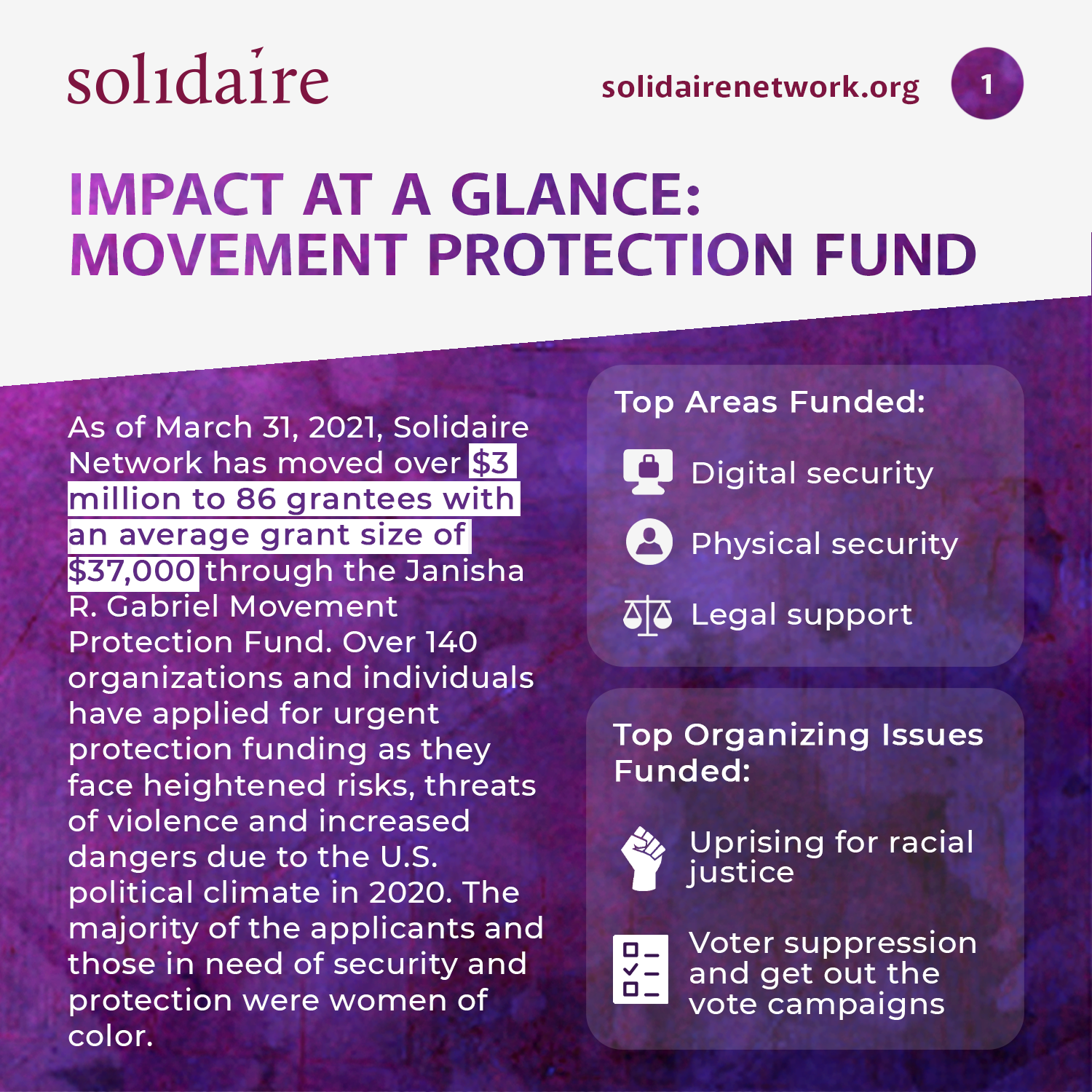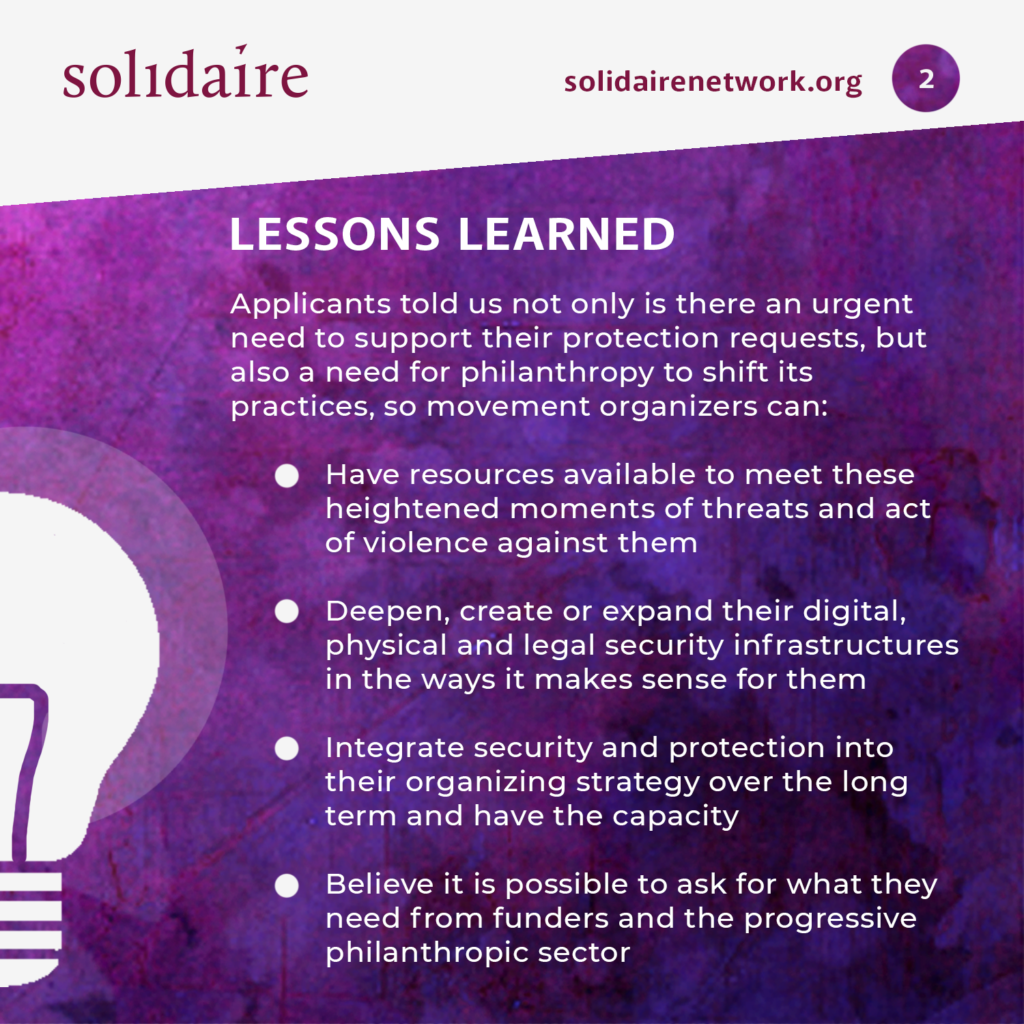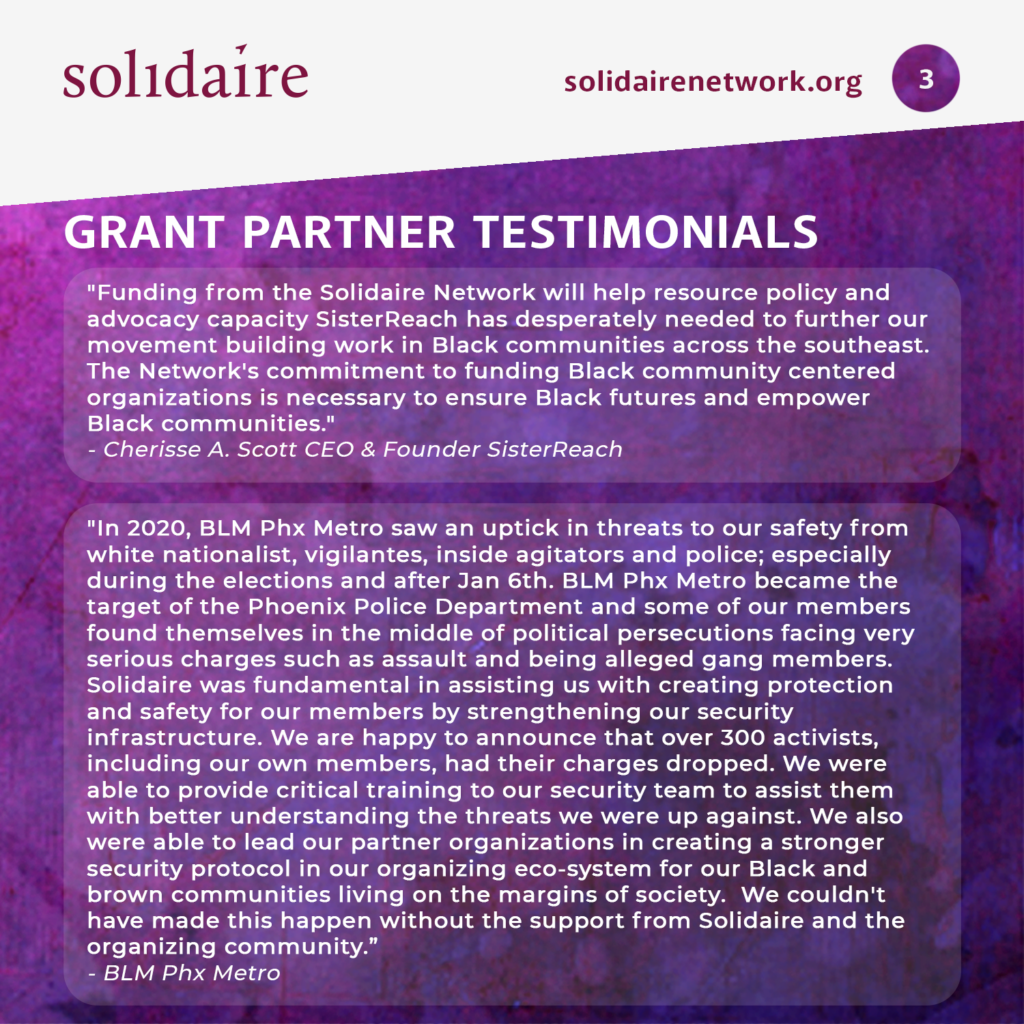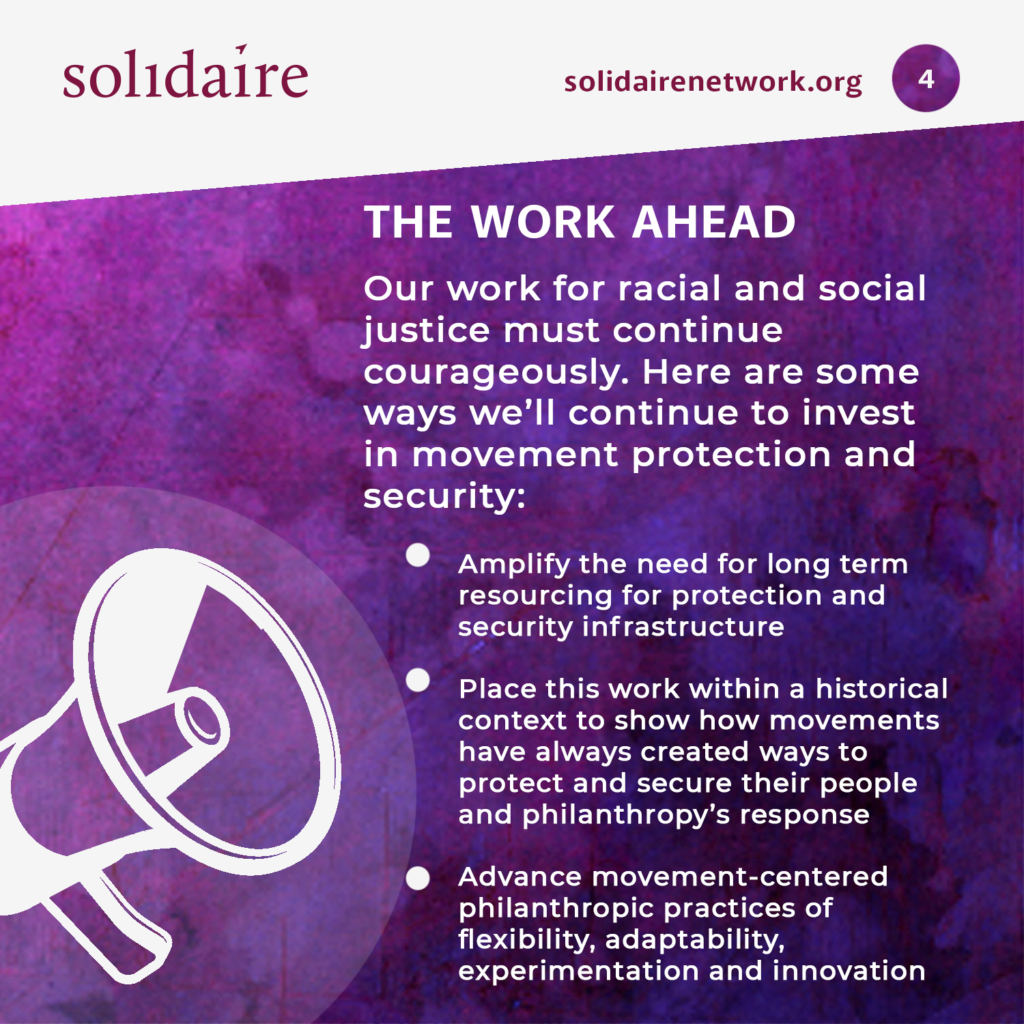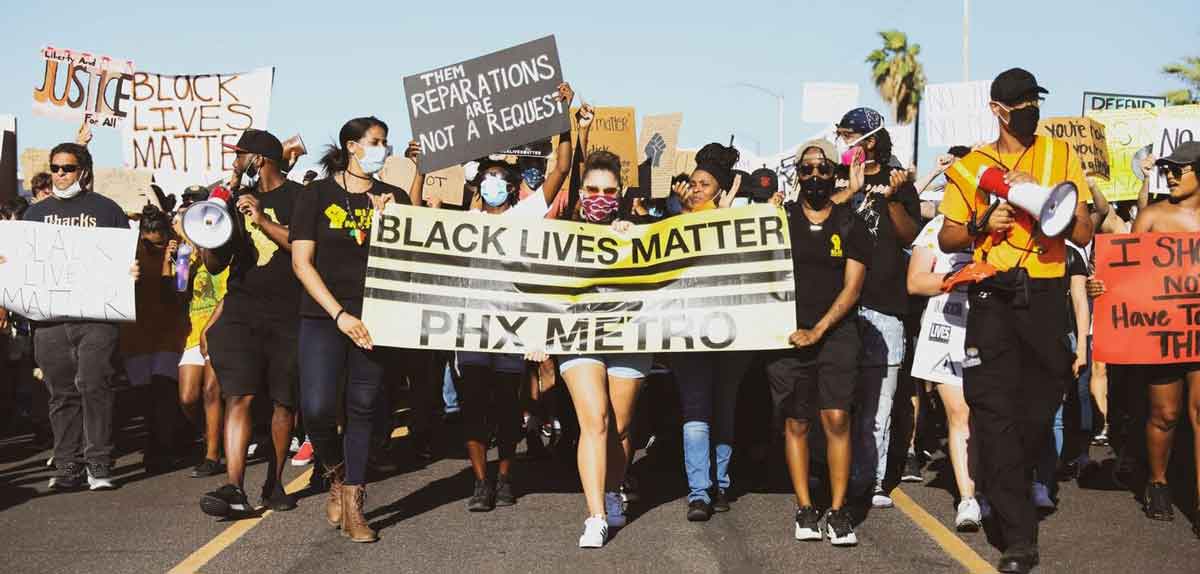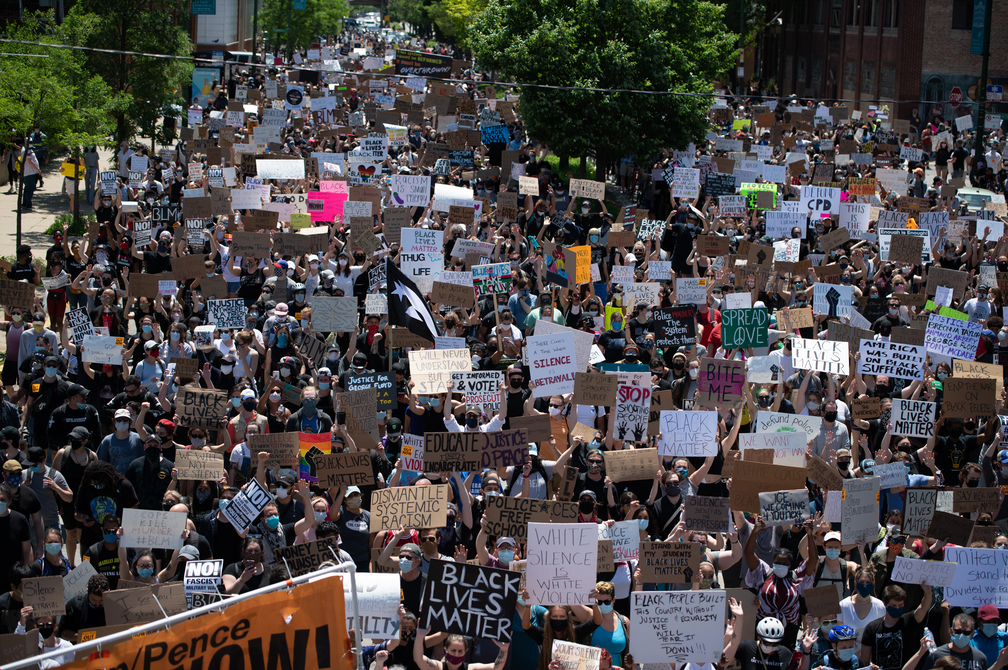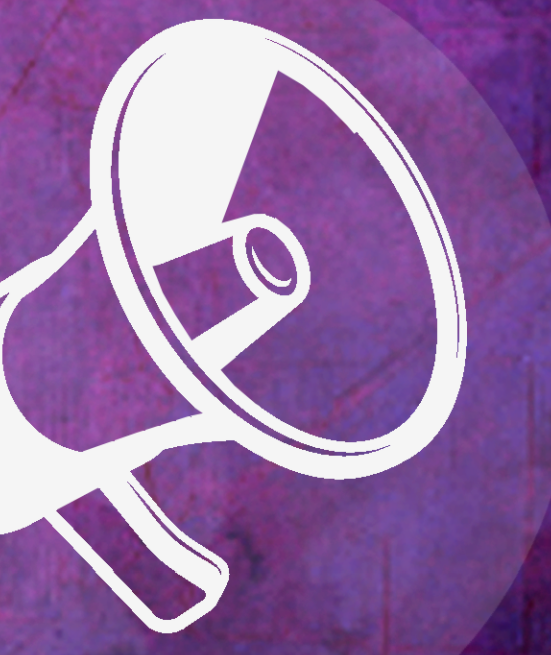Month: July 2021
Today’s racial justice movements need protection — and funders must respond
Today’s racial justice movements need protection — and funders must respond


Jesenia A. Santana, senior resource strategist at Solidaire, wrote an opinion piece for Candid to discuss how Solidaire supports racial justice movement leaders who are facing heightened levels of risk, trauma, and violence.
Solidaire listened to the calls of movement leaders who are experiencing vigilante and state violence and created a new funding vehicle to keep them safe.
Santana discusses the retaliation and mass arrests organizers in the Phoenix Metro area faced after Black Lives Matter protests:
“Like so many others across the country, members of Black Lives Matter Phoenix Metro have organized and participated in numerous protests and public calls for racial justice in the past year. Their activism has kept a powerful spotlight on the harms and trauma caused by white supremacy and the need for healing and liberation for Black communities and other oppressed people. But that work has come at a great cost to the safety and security of people and organizations on the front lines.
Activists in Phoenix and elsewhere have experienced extensive harassment and serious threats to their safety from white nationalists, vigilantes, and police. During a May protest marking one year since the police killing of George Floyd, 124 people were arrested by Phoenix police without cause, with some undocumented participants chained at the wrist, waist, and ankles and turned over to federal immigration authorities for detention and possible deportation.”
Santana calls on philanthropy to be responsive to the changing landscape of digital and physical threats that grassroots organizers are facing:
“These are investments that do not fit into traditional funding models from philanthropy and government. And yet what could be more important to the success and sustainability of organizations and movements fighting for our collective liberation than the security and protection of their people?
The need for safety is immense. The people and groups on the front lines in the fight for our collective liberation are under threat. As funders committed to racial justice and movement building, let’s ask our nonprofit and movement partners what they need — and let’s commit together to support their efforts to keep themselves safe.”
Read the full article here.
Supporting the Future of Frontline Organizations: $7 Million Toward Social Movement Infrastructure
Supporting the Future of Frontline Organizations: $7 Million Toward Social Movement Infrastructure
Solidaire’s new Movement Infrastructure Fund awarded $7,340,000 to 55 groups as its inaugural cohort. The goal of this pooled fund is to support the long-term capacity of movement organizations and formations to build power and transform what is possible.
“Social movements need philanthropy to take their needs and visions seriously,” said Ada Smith, Solidaire Network’s movement partnership and grantmaking practitioner. “Our application process underscored that transforming oppressive systems is generational work, so we responded with multi-year grants. Donors and grantmakers must do more to protect and flank this work over time.”
The Movement Infrastructure Fund is informed by the experiences of movement partners who want relationships with funders who believe in their vision. Trusting BIPOC organizers who are directly impacted and on the frontlines looks like funding their capacity and sustainability. Through multi-year, general operating grants, the Movement Infrastructure Fund contributes to resistance by helping to scaffold systems and tools, as well as transformative futures through agency and scale.
“We are living in a time of powerful organizing and this list of grantees reflects the complexity of the movement infrastructure needed to keep winning and win bigger,” said Janis Rosheuvel, director of movement partnerships and grantmaking at Solidaire. “From efforts to recover and steward land in collective and Indigenous ways, to the creation of grassroots media that combat dangerous narratives, these partners represent a wide range of groups that are meeting the challenges of organizing in a moment of great opportunity and risk. We must keep funding a variety of strategies, especially groups and in regions that are often overlooked and underfunded.”
Solidaire received over 1,100 applications, showing the array of grassroots genius, innovation and agency. It was clear through the process that Indigenous communities, AAPI leaders, rural organizers, farmworkers and service workers are demanding systemic-level change, and need investment in the long-term infrastructure that can power victories. The Movement Infrastructure Fund’s Advisory Team offered insights and strategy on the role of infrastructure to build durable, resilient movements. From electoral strategies to affordable housing, from legal support to digital security the 55 grantees selected represent vital back-end services, networks and alliances, as well as political homes-all essential infrastructure for social movements to sustain and grow.
“We are honored to concretely express our solidarity through unrestricted funding partnerships with movement formations leading the necessary work of social transformation,” said Rajasvini Bhansali, executive director of the Solidaire Network. “This is just the beginning. Grassroots organizers and movement leaders have long sounded the alarm on the urgent need for long-term investment in movement infrastructure.”
Since 2013, Solidaire has provided an opportunity for its membership to pool financial resources and act together. Solidaire has distributed over $3 million to ensure security and protection of social justice leaders through the Janisha R. Gabriel Movement Protection Fund. In May, through the Black Liberation Pooled Fund (BLPF), Solidaire awarded $14 million over two years to 102 organizations in the movement for Black freedom. The Movement Infrastructure Fund, along with the Black Liberation Pooled Fund, further demonstrate Solidaire’s commitment to the value of long term resourcing of movements.
Stay connected to Solidaire via its website to learn more about what the network is learning about partnership, grantmaking and solidarity.
At a Glance: The Impact of Solidaire’s Movement Protection Fund
At a Glance: The Impact of Solidaire’s Movement Protection Fund
In September 2020, Solidaire launched the Janisha R. Gabriel Movement Protection Fund in direct response to listening to our movement partners tell us about the urgent and immediate needs of movement leaders who were facing heightened risks, threats of violence and increased dangers due to the U.S. political climate in 2020. The fund was closed in December 2020 and reactivated in January 2021 in response to the rise in hate crimes following the insurrection in the U.S. Capitol before closing again.
As of March 31, 2021, we have moved over $3 million to 86 grantees with an average grant size of $37,000 through the Movement Protection Fund. Over 140 organizations and individuals applied for funding.
We think it is critical to share the results and lessons learned from the grantmaking process. Below, you can read some highlights from what our fund has accomplished and learn more about why it’s so necessary to fund this work year round and protect our movement organizers on the ground.
